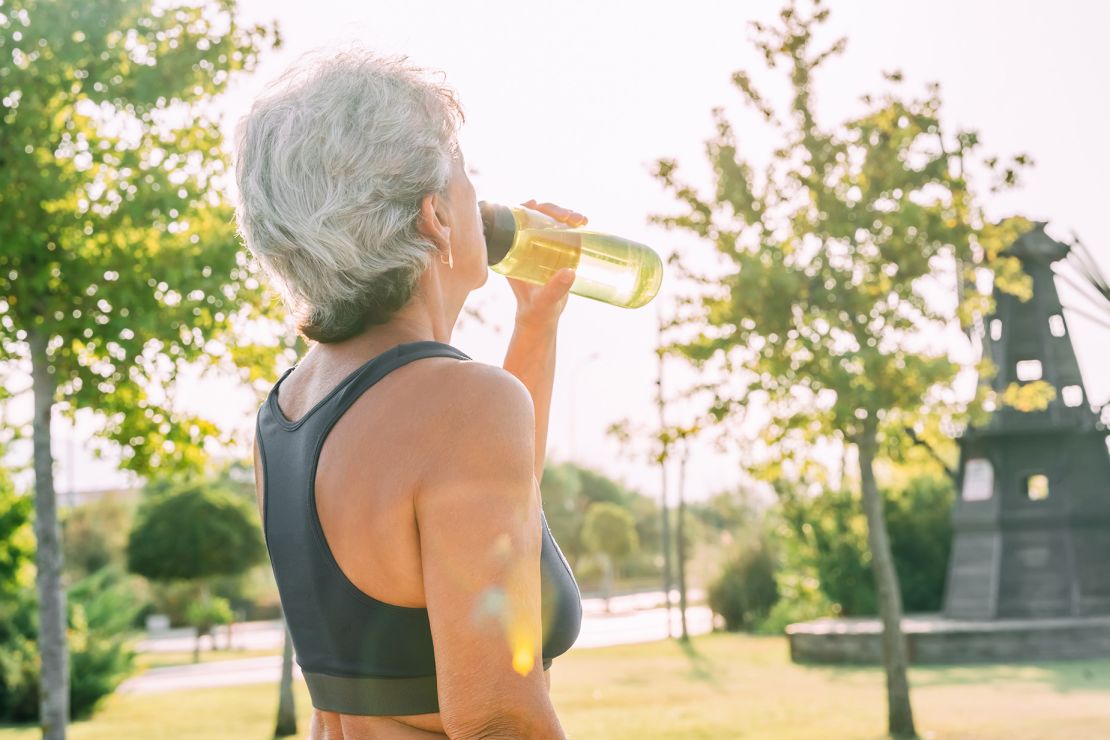Sign up for CNN’s Fitness, But Better?newsletter series.?Our seven-part guide will help you ease into a healthy routine, backed by experts.
For people in the Northern Hemisphere, it’s summer and you might be inspired to get outdoors to move more.?But the weather is getting too warm in some places for people to exercise safely outside.
We know that adults should aim for at least?150 minutes ?of moderate-intensity physical activity weekly. This can include exercises such as brisk walking, biking, playing basketball, swimming and more vigorous household tasks like mowing the lawn and vacuuming, also called functional fitness.?But is that all safe to do at high temperatures?

How hot is too hot for exercising outdoors? Is it safe to exercise outside at some times of the day? Should younger or older people take more precautions in the heat? What about people who have heart and kidney conditions or take certain medications?
To help us stay fit and safe in the summer heat, I spoke with CNN wellness analyst Dr. Leana Wen. Wen is an emergency physician and clinical associate professor at the George Washington University. She previously served as Baltimore’s health commissioner.
CNN: What precautions should people take before exercising during the summer?
Wen:?Summer can be a fantastic time to get outside and become more active, but as temperatures rise to unsafe levels,?people should be aware of the risk of?heat-related illnesses. I’d advise that people look at the weather forecast before exercising. If a?heat wave?is expected, avoid exercising in the hottest part of the day and instead go out in the morning or evening. If it’s going to be very hot all day and into the night, don’t do your workout outside.
CNN: What can happen if people work or exercise too much outside in the heat?
Wen:?Someone working or exercising outside for prolonged periods of time may experience symptoms of heat exhaustion, including headache, weakness, dizziness?and nausea. When this happens, get out of the sun and into a cool, air-conditioned space. If symptoms worsen and the person develops confusion and vomiting, for instance, they may have?heat stroke, which is an emergency and requires immediate medical attention.
CNN: Which people are most at risk during a heat wave??
Wen:??People who are the most vulnerable include those who are very young and elderly, and those who have chronic medical conditions. Several underlying conditions, such as heart, lung and kidney problems, can be exacerbated by heat.
CNN: Do any medications make people more vulnerable during a heat wave?
Wen:?Several medications can increase risk during times of extreme heat. Common blood pressure medications, like calcium channel blockers, beta-blockers and diuretics, can have effects such as increasing the likelihood of dehydration and electrolyte imbalances during extreme heat. There are medications used for some mental health conditions that can affect the body’s normal response to regulate temperature. That includes some antidepressants and stimulants used for attention deficit hyperactivity disorder.
Over-the-counter medicines can also have these effects. Diphenhydramine, for instance, and doxylamine are common antihistamines that can make people sweat less and affect temperature regulation.




